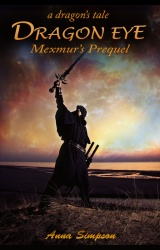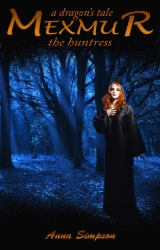
This post was written for the Insecure Writer’s Support Group where we share our encouragement or insecurities on the first Wednesday of the month, to join the group or find out more click here.
To celebrate three years of the IWSG and one year of the website and Facebook group, the IWSG Team is putting together an eBook that will benefit all writers – The IWSG Guide to Publishing and Beyond.
oOo
I was invited to contribute. Here’s my submission:
The Sentence
Sentences are complete thoughts.
We have simple thoughts:
Anna typed a word.
A simple sentence or thought usually has a subject and predicate which may or may not include an object.
We have compound thoughts:
Anna typed a word, but she misspelled it.
To identify a compound sentence, simply look for a comma before a common coordinating conjunction that links two subjects and two predicates. Some common conjunctions are: and, but, for, or, nor, so, and yet. If you need more, do an internet search for a complete list. I have mine posted by my monitor.
There are complex thoughts:
Deciding to write, Anna, a slow typist, typed a word, focused to help aspiring writers, but she misspelled it; disgusted, she got up, and walked away.
The above may not be perfect. But notice what I’ve tried to incorporate within the thought. It has detail that the simple and compound sentence doesn’t. It has clarity, showing more of what I meant to say. And in my opinion, it has captured a moment of my life—imaginary or not.
Note: the rest of this post is only the bare-bone basics of complex sentences. I will include some vocabulary, not to belittle you, but to enable you seek out more information when you want it.
Okay. Lets’ get complex.
I’ll be dissecting:
Deciding to write, Anna, a slow typist, typed a word, focused to help aspiring writers, but she misspelled it; disgusted, she got up, and walked away.
The introduction:
Deciding to write
Introductions can be useful to indicate that time has passed, or the subject changed focus. Play with them. In my case, I was simply taking a short cut, so I could get to the meat of the message I wanted to convey.
The subject:
Anna
Usually a noun. In this case Anna is a proper name and the person taking action in the sentence.
The appositive:
a slow typist
The appositive is a modifying phrase and is specific to the proper name (Anna), giving a detailed description, and occasionally, reminding the reader who the subject is. Useful, if it’s been a while since a character last appeared your story.
The predicate:
typed a word,
is the remainder of the thought. It contains the verb, and in this case, the object.
The verb:
typed
A verb is the action word.
The object:
a word
is by definition the thing, or object acted upon. ‘A word’ is the result of Anna’s action of typing, therefore, I believe it is the object of this sentence.
The modifying phrase:
focused to help aspiring writers
Modifies the ‘a word’, using a dependent phrase can replace an adverb or adjective, and can deepen the meaning of a subject, object or verb. Usually found directly beside the word/phrase to be modified and enclosed within commas. If the phrase is too far away, you’ll land up with a dangling modifier.
Second half of the compound sentence.
but she misspelled it
Dangling modifier is a phrase that points at the wrong verb, subject or object.
Anna climbed the stairs, not looking back.
Adding the modifier here, I’ve stated that the stairs are not looking back. It should have been written like this:
Anna, not looking back, climbed the stairs.
Semi-colon:
; disgusted, she got up, and walked away.
Here I used a semi-colon instead of a conjunction. Use these sparingly. I reserve them for sentences that are closely related; where the second sentence directly refers to the first sentence. A common mistake is to use a comma instead. This error is called a comma splice and must be avoided.
Complex sentences can be written half back to front.
Because she misspelled the word; Anna got up, and walked away.
Above I’ve used a semi-colon as a proprietary comma. I’ve could have written it:
Anna got up, and walked away because she misspelled the word.
You’ll notice I only needed one comma, but because I wrote it half back to front I needed two commas. One was for the sentence being cut in two, which is where I substituted a semi-colon, and the other before the conjunction.
So why do we want to write in such a way–variety, clarity, and emphasis?
Variety
As writers we don’t want to write a story that reads like a first grade reader. Simple thoughts are quick and to the point. When we get into complex sentences we add flavor, but we can’t write with only complex sentences either. We need a variety. We need rhythm.
Clarity
As writers, we try to express what we are imagining. Not an easy task at the best of times, using all the tools available to us we are more able to capture and express what we mean.
Emphasis
The beginning and the end are where we focus as readers. It’s where the writer must put the emphasis of a sentence. In my complex sentence the emphasis is on Anna walking away. It could have just as easily been reworded to focus on her disgust or slow typing.
I encourage you as a writer to play with complex sentences, and master them. They will let your voice and style shine through while expressing exactly what is on your mind.
Thank you and good luck with your writing adventure.










I love how you broke down the sentence! I think I do use complex sentences, but I have no idea what I am actually doing. It is more like I do things that sound right, or look right, but I really don’t understand the underlying grammatical structure. (I will admit I have an unhealthy affinity for the comma splice, which I have been told is bad and wrong. I’m working on it!)
I also feel like there is a push among editors and critiquers sometimes to simplify sentences, to cut things up. But unless we are talking about a sex scene or a fight scene, or some other high-tension narration, I don’t see the need to shorten sentences.
Great post 🙂
I’m glad you enjoyed it. Stick to your guns, sister 🙂
Great post, Anna. Varying sentences is so important.
Thanks, Diane 🙂
I think this anthology will do really well and your submission will be really helpful to a lot of people. It really is a great group isn’t it 🙂
Kind of in love here. Helping, just as I was helped, makes things feel brighter. I’m not there yet though, I still need help too 🙂
Very specific. Love it! Some of the rules I follow subconsciously actually have reasons…strange. =)
Instincts of a great writer. Nice 🙂
Wonderful post. Great breakdown!
Thanks. Hopefully it will help the newbies 🙂
This is a great post on sentence construction, it will be an excellent addition to the anthology. Thank you for your contribution.
Great to visit as co-host of IWSG this month.
I was hoping to offer something unique 🙂
Brilliant!
You dissected the topic with the skill of a surgeon. The beauty of what you’ve done, is that it required no anesthesia. As an added bonus, you did it without leaving a drop of blood on the table, or floor.
Love it …
Sherman L. Bailey
{ ~ Jericho~ }
https://www.facebook.com/jericho.express
Thanks. I had no idea I was that good. hehehe
I’m offering you a sincere apology for my delayed response. I’ll take this moment to push doubt aside, and say my observations regarding your work have genuine merit; and should not be taken lightly.
I say this not to flatter you, but from what I’ve seen thus far, your approach to writing is nothing short of brilliant.
And by the way, I’m not a talent scout, a stalker, or an agent seeking to acquire new talent.
I am, as you are; gender roles caste aside for a moment, nothing more than someone seeking to have their voice heard, on topics that run the gamut of human interest.
Writing and publishing, at the moment, are at the top of that list. The list is long, with particular interest, in what I personally consider useful, valuable information, that cover every aspect of the human condition.
This of course, is not the time or place for me to elaborate on the myriad of things going on inside my head. I do, however, have every intention of using my blog for that purpose.
But first, I’ll have to work out bugs and technical glitches associated with that process.
Moving on …
For the most part, I’m self taught. So the trial and error approach, or said another way, ” Trial by Fire” is the road I’m currently traveling.
Not by choice?
But for now, it’s the only viable option.
It would be nice, to have a staff, a team, or a group of professionals that were ready, willing and able to make that happen. But as of now, that’s simply not the case.
Changing gears … by now, I’m sure you can see that I can a bit ” long -winded “on matters I consider important. But then again, who isn’t?
Suffice it to say, I believe you were owed an apology for my delayed response, to your response to my comment on your blog.
Whew ….
So since as of now, we’ve gotten most of that out of the way, I’d like to extend a personal invitation to you to visit my blog and website. The links to both, are on my blog here@ wordpress.com. ” The Road to Jericho.” And for the record: You should consider yourself a welcome, honored and respected guest in my home.
If there’s anything I can do to help you, don’t hesitate to ask.
I’m looking forward to hearing from you in the not too distant future.
So until then, take care,
Sherman L.Bailey
{ ~ Jericho~ }
Thanks, I promise to drop by 🙂
I’m looking forward to it …
Here’s the link to my website .. when you get a minute, take a look at it. I’d love to your thoughts on what I’m trying to accomplish. http://jerichoexpress.com/
I teach college English and we just talked about sentences. It always surprises me how much people don’t know (or forget) about punctuation. But nuance adds so much to what we write, and it’s nice to have this kind of knowledge in our arsenal.
Thanks 🙂
It’s great to see a sentence broken down. This will help a lot of writers.
That was the plan 🙂
It’s a great article. Thanks so much for your addition in the book.
You’re welcome. Beginners need basics to grow on 🙂
Very nice. I’ll admit, comma’s and I have a very complicated relaitonship. Sometimes I love them, sometimes I hate them. Sometimes they behave themselves, sometimes they run wild. I can use every single sentence-structure reminder I can get.
When you put it that way, so could I. 🙂
I have to be careful with complex sentences. I tend to ramble on a bit too much and BAM, it’s a run-on sentence five miles long. You made it seem easy. Thanks for the breakdown.
Elsie
co-host IWSG
You’re welcome. I was going for easy, hope some can build on it. 🙂
Great reminder for all of us.
Nice to know 🙂
I took a brush-up course in grammar on Coursera last year to keep my brain fresh. This article is going to be great to fall back on when I run into the inevitable semi-colon and comma splice issue that tends to happen every so often. I’m thrilled that’s it’ll be included in the Anthology. You’re the best, Anna. Hugs to you always! Eva
I don’t know about being the best, but thank you all the same. Just trying to help my fellow writer succeed. 🙂
Enjoyed the post. I need to brush up on my grammar skills too. It has been a long time, since I thought of sentences in technical terms. I have been considering taking a refresher course as well.
Juneta at Writer’s Gambit
First round I let the creative juices flow. Second round I use the rules, and expand my thoughts. So far it works. 🙂
It’s a good thing we love language, right? Ahh. The beauty and headache of it all. Lol. I liked how you broke it down and showed us! Thank you. Heaven knows I will refer to it.
I’m glad to be helpful. 🙂
Ugh, this can get confusing. I was never great at grammar but I always kind of knew what worked, I just didn’t know why.
Instincts sometimes work better than grammar, espeically if read aloud. 🙂
What a wonderful reminder of grammatical rules we so easily forget to keep in mind. Great post!
Thanks
This is awesome, Emaginette, it’s so easy to forget the basics and take them for granted.
True. 🙂
This is very helpful – not just for sentences too I think! “The beginning and the end are where we focus as readers. It’s where the writer must put the emphasis of a sentence. “
I’m glad it came in handy, cuz that was the plan 🙂
This is a great post! I feel like I’m in school again. 😉
I hope you enjoy time travel hehehe
Thanks again for the great contribution to the book!
Glad to participate, love helping my fellows 🙂
That’s a GREAT entry for the book. Very enjoyable.
Leanne
Thanks, just adding my two bits. 🙂
Boy, did this bring back memories of English class. Not that there’s anything wrong with that! Thanks for the refresher.
The post is more for the newbie and not so much for the (old) pro. Sorry about the flashback. 🙂
Wow, awesome responses you got to this post, Anna! Woohoo. Very clear and concise break down. Thank you!
It’s been pretty positive. I tried to think of the thing I needed most when it all began for me. And discovering the complex sentence blew the doors off of my writing, setting it all free. 🙂
Great post. Another one for my tip file. Thanks so much for sharing Anna and have a fun weekend!
You too, Sherry. 🙂
The semi-colon is one of the trickiest to use properly. Great examples of how a sentence can be restructured.
Play off the Page
Thanks. That means a lot 🙂
I definitely needed something like this post–if only my English classes had taught us grammar this way.
I had the same issue. It took a while to learn this on my own 🙂
Pingback: Revision 3: Your Special Touch | Elements of Writing